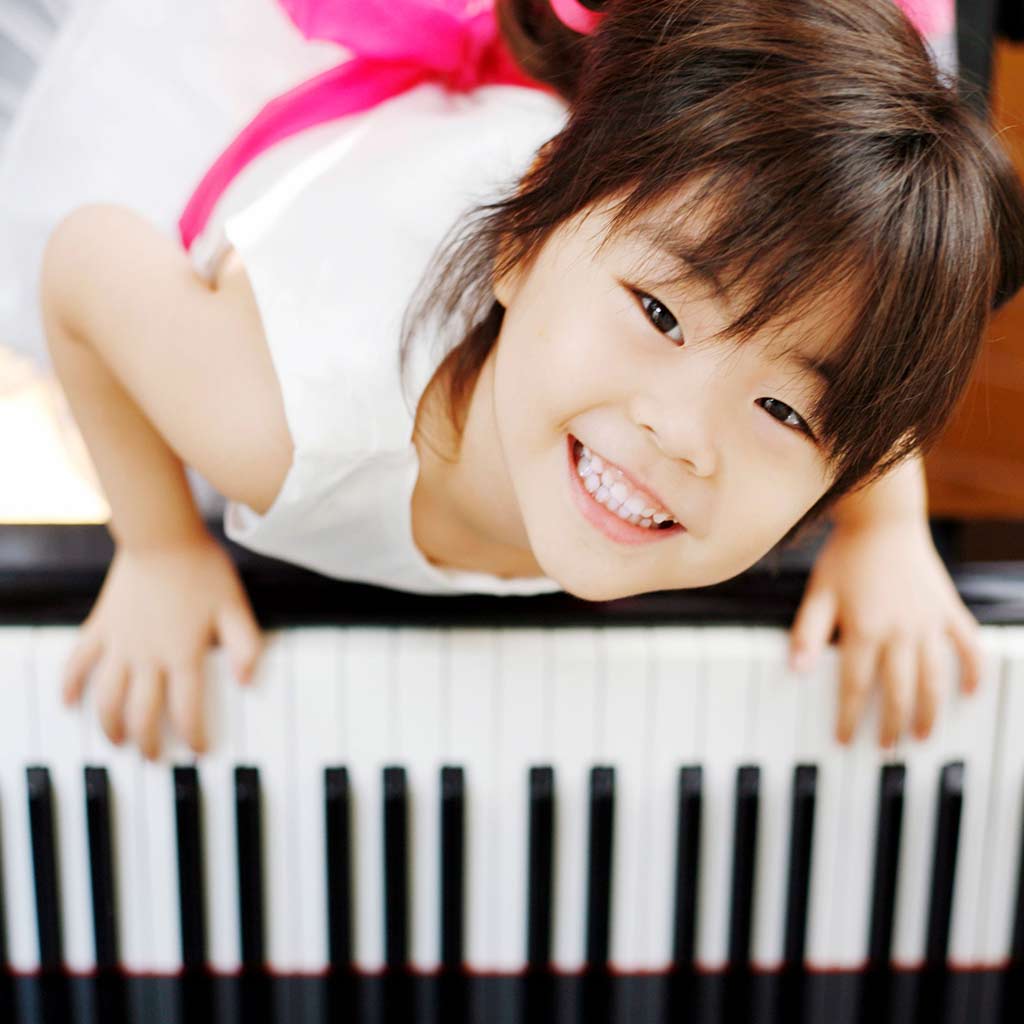All students of Excel Music learn to read music. Teachers will devise a customized curriculum for each student which will incorporate the style of music that the student wants to learn in addition to teaching music theory, history and other appropriate musical skills.
Piano Lessons
A piano is provided in the lessons
- Recommended starting age: 5
- Recommended lesson length:
- Age 5-10, 30 minutes
- Above age 10, 60 minutes
Equipment needed: You’ll need a good quality piano or electronic keyboard to have something practice at home. A keyboard should have at least 60 full-sized keys, be velocity sensitive (the harder you press, the louder it plays) and NOT have keys that light up or other distractions, like rhythm accompaniment.

Practice time: 15-20 minutes per day for beginners, increasing over time to at least an hour per day.
Starting age: Piano is an excellent beginning instrument for students age five and above (we will start students at age four if they are deemed ready after a free evaluation). Learning keyboards is a great way to learn the fundamentals of music. It is easy to understand because of its straight-forward layout. In addition, piano is a great starting instrument for those students who are a little too young to start their favorite instrument. And it can make a change to a different instrument easier when a child is older.
Additional info: Of course, pianists of all styles and levels are welcome, whether to be more prepared for an audition, improve their skills for church, or just to have more fun with friends and family. Learning piano, or keyboard, promotes excellent hand-eye coordination. It requires the ability to perform multiple movements and thoughts simultaneously, which encourages rapid processing in the brain. Studies have shown that this can assist in other areas of learning as well.
